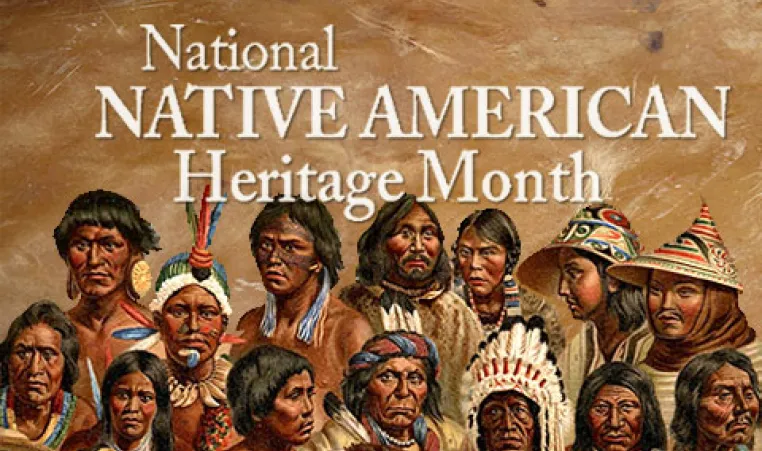
National Native American Heritage Month
Written by Staff Member Christopher Gonzales
National Native American Heritage Month is observed by the YMCA in November. It is a time to honor and remember the culture, customs, folklore, and contributions of the Native Americans who once lived in and still do so in the United States.
History
Native Americans' contributions and efforts were first acknowledged on May 13th 1916 when New York would become the first state to celebrate American Indian Day. In 1976, President Gerald Ford proclaimed October 10-16 “Native American Awareness Week” 10 years later Congress passed S.J. Res. 390, petitioning that the president call November 23-30 “American Indian Week.” In the years that followed, Congress kept up this tradition by designating one week in the autumn as "Native American Indian Heritage Week." November was chosen as the month to honor Native Americans since the month concludes their traditional harvest season and generally is a time of celebration and giving thanks. In 1990, Congress enacted a joint resolution that former President George H. W. Bush would sign into law. H.J RES 577 would acknowledge Native Americans in this joint resolution as the country's indigenous occupants who have made significant contributions to both the United States and the rest of the world. On October 29th, 2021, the Biden Administration officially declared November National Native American Heritage Month.
Charles Eastman
Charles Eastman, the first Native American to receive a Western medical degree, is one of the numerous Indigenous Americans whose heritage and contributions we honor this month. Both Native American and non-Native American groups held Dr. Charles Alexander Eastman in high regard as a leader. His life's work consisted of teaching others about the way of life of Native Americans, protecting their customs, and spreading their culture to everyone he came into contact with. Eastman's passion for helping young Native Americans brought him to the YMCA when in 1864 he was chosen by the International Committee to serve as the secretary for the expanding YMCA movement in North Dakota and Minnesota. He founded 32 YMCA chapters for Native Americans between 1894 and 1898. Eastman would later help design the YMCA Indian Scouts for urban boys (YMCA Adventure Guides) and help fund Boy Scouts of America
All around the world, there are indigenous people. There are about 110 federally recognized Native American tribes in California, some of which have territory that crosses state lines. Additionally, roughly 81 groups are seeking federal status. Our responsibility is to make sure that we recognize and celebrate them. The YMCA of Superior California recognizes and celebrates the cultures, contributions, and resilience of Native peoples, and we are proud to count them among our staff, volunteers, partners, and community.
Additional Reading:
Smithsonian: https://www.si.edu/events/
National Park Services: https://www.nps.gov/lecl/
White House: https://www.whitehouse.gov/
UCLA:
https://newsroom.ucla.edu/
Sacramento Native American Health Center: https://www.snahc.org/our-